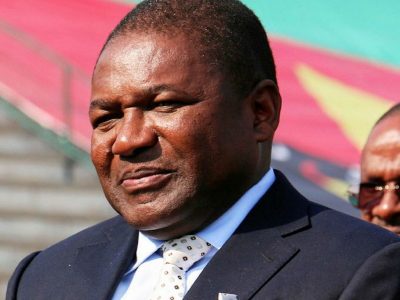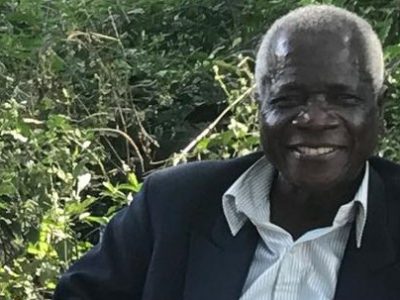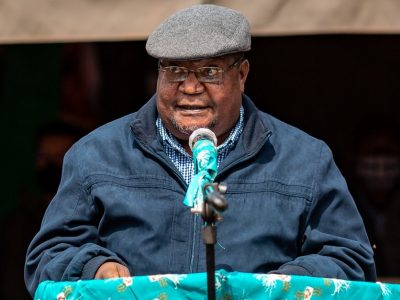Maputo Accord
The Maputo Accord for Peace and National Reconciliation, signed in August 2019, facilitated the end of years of conflict, seeking to bring definitive peace to Mozambique.
1992
Shortly after gaining independence in 1975, Mozambique endured a long and brutal civil war, claiming over 1 million lives. In 1992, after 16 years of fighting, a General Peace Accord was agreed between the ruling party, the Mozambique Liberation Front (FRELIMO), and the Mozambique National Resistance (RENAMO). A UN peacekeeping mission was deployed to keep the peace until the country’s first multiparty elections in 1994.
2013
With peace, the country started to experience rapid economic growth. However, the benefits of this growth were not felt by most and over half of the population remained below the poverty line. This contributed to Renamo reneging on the peace agreement, and in 2013 they launched a low-level insurgency. In 2014, a new peace deal was negotiated and signed shortly before the general elections. However, the election results were disputed, and the deal was short-lived, as violence re-surfaced in 2015.
In early 2016 a new round of talks began, supported through an international mediation process, which came to be known as the Avenida process. It involved a large number of mediators including the Catholic Church, represented by the Nuncio Edgar Pena; the European Union, represented by Mario Raffaelli and the Community of Sant'Egidio; South Africa represented by Ambassadors Mandlenkosi Memela, Thanduyise Chiliza and George Johannes; the former President of Tanzania, Jakaya Kikwete; the former President of Botswana, Sir Ketumile Masire (GLF), and; Jonathan Powell (Inter Mediate), both represented by Neha Sanghrajka (Centre for Humanitarian Dialogue). The process continued for over five months; however, it ended without tangible results at the end of 2016. In late 2016, and following multiple attempts to secure lasting peace and stability, the Principals, namely President Filipe Jacinto Nyusi, and the President of Renamo, Afonso Dhlakama, agreed to adopt a different approach and engage in direct negotiations that put national efforts at its core. Switzerland was requested to provide Good Offices. Then Swiss Ambassador to Mozambique Mirko Manzoni, the Centre for Humanitarian Dialogue’s Mediation Advisor Neha Sanghrajka and Inter Mediate’s Jonathan Powell conducted shuttle diplomacy between the two Principals, until direct contact was established. This represented a turning point for the peace process. Dhlakama announced a one-week ceasefire on the 27th of December 2016, which was followed by two subsequent extensions.
From the outset, the peace process placed the Principals at its centre. This increased the accountability of the parties to the process and to reaching a solution. The Principals officially launched the national peace process on 1st March 2017. It had the following key components: a Decentralisation Commission, to design a proposal for a new framework for decentralisation, a Military Affairs Commission, to table a proposal for the definitive DDR of Renamo combatants and a Joint Monitoring and Verification Team, to oversee adherence to the ceasefire and investigate reports of conflicts as a confidence building measure. A Contact Group, chaired by the Swiss Ambassador to Mozambique, Mirko Manzoni was formed to coordinate the international community’s support. A Secretariat was also established in early 2017 to support the process.
Significant advances were made resulting in a revision of the constitution to include amendments on decentralisation reform which were unanimously approved by Parliament in May 2018 followed by the signing of a Memorandum of Understanding (MoU) on Military Affairs in August 2018. This MoU outlined the road map for disarmament, demobilisation and reintegration (DDR). The process navigated the sudden death of Renamo leader Afonso Dhlakama on 3 May 2018. With the nomination of Ossufo Momade as the interim leader of Renamo, Momade was swiftly and intensively inducted to ensure that the process remained on track. Following the signing of the MoU both the Government and Renamo have demonstrated commitment to the central issue of DDR, with the official launch of the process in October 2018. The following groups are involved; Military Affairs Commission, Joint Technical Group for DDR, Joint Technical Group for Placement, Joint Technical Group for Monitoring and Verification. A team of international military experts, known as the International Component, were also invited to assist the JTGDDR in their work.
Renamo signalled their commitment to the process by officially starting the DDR process, alongside Government counterparts, in Gorongosa on 29 July 2019, before the final peace agreement was signed. This combination of early-stage implementation during the negotiations helped build trust on both sides and led to the signing of the Agreement on the Definitive Cessation of Military Hostilities and the Maputo Accord for Peace and National Reconciliation in August 2019. These agreements commit both parties to end all political and military hostilities and to implement, in full, the legislative package on decentralisation. Furthermore, both parties reaffirmed their desire to see a future of peace and reconciliation in Mozambique and promised to prioritise dialogue as a means for settling grievances. In July 2019, the United Nations Secretary-General, António Guterres, appointed Ambassador Manzoni as his Personal Envoy for Mozambique. This ensured continuity in the approach to facilitating dialogue between the Government and Renamo and support for the subsequent implementation of the peace accord.
Following the arrival of the COVID-19 pandemic, a State of Emergency was announced by President Nyusi in late March 2020. Among other measures, a ban on all public and private gatherings and the closure of international borders were introduced. The Government and Renamo, with the support of the Personal Envoy and the Peace Process Secretariat, worked together to redesign activities to ensure the safe implementation of the Maputo Accord. Following consultations with the Ministry of Health (MISAU) and the World Health Organisation (WHO), President Filipe Nyusi, and the Renamo leader Ossufo Momade approved a revised implementation plan.
On 4 June 2020, the Government and Renamo restarted DDR activities in Savane, Dondo district, Sofala province with President Nyusi and Renamo leader Momade visiting the location on 5 June and witnessing the delivery of weapons by former Renamo combatants. DDR activities continued throughout the remainder of the year, with the closure of six bases and the demobilisation of 1,490 former combatants (29% of total). Both the President and the leader of Renamo expressed their satisfaction with the pace and conduct of DDR, and reiterated their continued commitment to peace.
Despite the challenges imposed by the ongoing COVID-19 pandemic, from the project inception through to the end of 2021, 3,267 DDR beneficiaries (156 women and 3,111 men), equivalent to 63 percent of the total number of DDR beneficiaries, participated in DDR activities and returned home to begin the process of socio-economic reintegration in their communities, with 11 Renamo military bases closed.
As the DDR process continued to demonstrate positive results, members of the Renamo Military Junta (RMJ) laid down their weapons to pursue a path of peace. However, despite extensive outreach by the Government, Renamo and the Personal Envoy, effective dialogue with the leader of the RMJ, Mariano Nhongo, toward a peaceful outcome proved challenging. Mr Nhongo died in a confrontation with the Defense and Security Forces in October. The remaining members of the RMJ were demobilised in December 2021, bringing the country closer to the realisation of lasting peace.
Important advances were also made through the reintegration process, with the Personal Envoy and PPS engaging with the Government, private sector and development stakeholders to advance reintegration by identifying economic, livelihood and education opportunities across Mozambique.
Efforts during 2021 also focused on advancing reconciliation, as PPS collaborated with five new or reactivated peace clubs and a wider national reconciliation campaign (‘A Paz é Nossa Cultura’) in partnership with the Ministry of Education.
Implementation of the Maputo Accord continued successfully in 2022, with a further 1,607 beneficiaries demobilised and four bases closed. These beneficiaries received reinsertion kits and settled in communities across Mozambique, where they began their transition to civilian life.
In a demonstration of commitment to national reconciliation, in April 2022, the Principals agreed to establish a pensions working group with the objective of consolidating a national pensions reform strategy, laying the groundwork for increased fiscal stability and definitive peace. The Personal Envoy has played an important role in this, serving as Chair of the Oversight Committee.
PPS supported the establishment, consolidation and reactivation of nine Peace Clubs throughout 2022, which continue to play a central role in spreading messages of peace and reconciliation across Mozambique.
As the disarmament and demobilisation phase neared its conclusion, efforts increased towards ensuring reintegration continued to advance within the framework of the individual, family and community pillars. As a result, by the end of 2022, a total of 1,338 individuals (DDR beneficiaries and family members) were connected with reintegration opportunities, and reintegration partners in 11 districts had supported activities linked to the community pillar of reintegration.
The Mozambican peace process has seen significant successes in 2023. One of the key highlights has been the completion of the disarmament and demobilisation phase of DDR, following the closure of the final Renamo base in Vunduzi, in June 2023. With this milestone, all 5,221 DDR beneficiaries (271 women and 4,950 men) have settled in communities across Mozambique and have begun their journey towards reintegration. This achievement was a result of the sustained dedication on the part of the Principals, President Nyusi and leader of Renamo, Ossufo Momade, to implementing the Maputo Accord and securing a future of sustainable peace in Mozambique. These efforts were supported by the good offices of the Personal Envoy of the UN Secretary General of Mozambique.
In April a historic decree was passed that extends a pension to eligible women and men demobilised as part of the implementation of the Maputo Accord. This will provide DDR beneficiaries with a sense of dignity and recognition, furthering social inclusion, and setting an example of reconciliation for the rest of the world.
The year also began with Mozambique taking up its non-permanent seat on the United Nations Security Council (UNSC), for the first time in its history. This provided the country with an opportunity to share its peacebuilding experience and lessons learned on the global stage. During its Presidency of the Council in March, Mozambique prioritised topics including Women, Peace and Security, Counter-Terrorism, Peace and Security in Africa, and Climate and Security.
Work on reintegration has continued in earnest within the framework of three pillars – the individual, family and community – and in light of the final group of demobilised DDR beneficiaries recently settling in communities across various provinces in June. Sustained attention has been given to finding and securing economic, education and livelihood opportunities in nearly every district of the country.
Shortly after gaining independence in 1975, Mozambique endured a long and brutal civil war, claiming over 1 million lives. In 1992, after 16 years of fighting, a General Peace Accord was agreed between the ruling party, the Mozambique Liberation Front (FRELIMO), and the Mozambique National Resistance (RENAMO). A UN peacekeeping mission was deployed to keep the peace until the country’s first multiparty elections in 1994.
2013
2016
With peace, the country started to experience rapid economic growth. However, the benefits of this growth were not felt by most and over half of the population remained below the poverty line. This contributed to Renamo reneging on the peace agreement, and in 2013 they launched a low-level insurgency. In 2014, a new peace deal was negotiated and signed shortly before the general elections. However, the election results were disputed, and the deal was short-lived, as violence re-surfaced in 2015.
In early 2016 a new round of talks began, supported through an international mediation process, which came to be known as the Avenida process. It involved a large number of mediators including the Catholic Church, represented by the Nuncio Edgar Pena; the European Union, represented by Mario Raffaelli and the Community of Sant’Egidio; South Africa represented by Ambassadors Mandlenkosi Memela, Thanduyise Chiliza and George Johannes; the former President of Tanzania, Jakaya Kikwete; the former President of Botswana, Sir Ketumile Masire (GLF), and; Jonathan Powell (Inter Mediate), both represented by Neha Sanghrajka (Centre for Humanitarian Dialogue). The process continued for over five months; however, it ended without tangible results at the end of 2016. In late 2016, and following multiple attempts to secure lasting peace and stability, the Principals, namely President Filipe Jacinto Nyusi, and the President of Renamo, Afonso Dhlakama, agreed to adopt a different approach and engage in direct negotiations that put national efforts at its core. Switzerland was requested to provide Good Offices. Then Swiss Ambassador to Mozambique Mirko Manzoni, the Centre for Humanitarian Dialogue’s Mediation Advisor Neha Sanghrajka and Inter Mediate’s Jonathan Powell conducted shuttle diplomacy between the two Principals, until direct contact was established. This represented a turning point for the peace process. Dhlakama announced a one-week ceasefire on the 27th of December 2016, which was followed by two subsequent extensions.
2017
From the outset, the peace process placed the Principals at its centre. This increased the accountability of the parties to the process and to reaching a solution. The Principals officially launched the national peace process on 1st March 2017. It had the following key components: a Decentralisation Commission, to design a proposal for a new framework for decentralisation, a Military Affairs Commission, to table a proposal for the definitive DDR of Renamo combatants and a Joint Monitoring and Verification Team, to oversee adherence to the ceasefire and investigate reports of conflicts as a confidence building measure. A Contact Group, chaired by the Swiss Ambassador to Mozambique, Mirko Manzoni was formed to coordinate the international community’s support. A Secretariat was also established in early 2017 to support the process.
2018
Significant advances were made resulting in a revision of the constitution to include amendments on decentralisation reform which were unanimously approved by Parliament in May 2018 followed by the signing of a Memorandum of Understanding (MoU) on Military Affairs in August 2018. This MoU outlined the road map for disarmament, demobilisation and reintegration (DDR). The process navigated the sudden death of Renamo leader Afonso Dhlakama on 3 May 2018. With the nomination of Ossufo Momade as the interim leader of Renamo, Momade was swiftly and intensively inducted to ensure that the process remained on track. Following the signing of the MoU both the Government and Renamo have demonstrated commitment to the central issue of DDR, with the official launch of the process in October 2018. The following groups are involved; Military Affairs Commission, Joint Technical Group for DDR, Joint Technical Group for Placement, Joint Technical Group for Monitoring and Verification. A team of international military experts, known as the International Component, were also invited to assist the JTGDDR in their work.
2019
Renamo signalled their commitment to the process by officially starting the DDR process, alongside Government counterparts, in Gorongosa on 29 July 2019, before the final peace agreement was signed. This combination of early-stage implementation during the negotiations helped build trust on both sides and led to the signing of the Agreement on the Definitive Cessation of Military Hostilities and the Maputo Accord for Peace and National Reconciliation in August 2019. These agreements commit both parties to end all political and military hostilities and to implement, in full, the legislative package on decentralisation. Furthermore, both parties reaffirmed their desire to see a future of peace and reconciliation in Mozambique and promised to prioritise dialogue as a means for settling grievances. In July 2019, the United Nations Secretary-General, António Guterres, appointed Ambassador Manzoni as his Personal Envoy for Mozambique. This ensured continuity in the approach to facilitating dialogue between the Government and Renamo and support for the subsequent implementation of the peace accord.
2020
Following the arrival of the COVID-19 pandemic, a State of Emergency was announced by President Nyusi in late March 2020. Among other measures, a ban on all public and private gatherings and the closure of international borders were introduced. The Government and Renamo, with the support of the Personal Envoy and the Peace Process Secretariat, worked together to redesign activities to ensure the safe implementation of the Maputo Accord. Following consultations with the Ministry of Health (MISAU) and the World Health Organisation (WHO), President Filipe Nyusi, and the Renamo leader Ossufo Momade approved a revised implementation plan.
On 4 June 2020, the Government and Renamo restarted DDR activities in Savane, Dondo district, Sofala province with President Nyusi and Renamo leader Momade visiting the location on 5 June and witnessing the delivery of weapons by former Renamo combatants. DDR activities continued throughout the remainder of the year, with the closure of six bases and the demobilisation of 1,490 former combatants (29% of total). Both the President and the leader of Renamo expressed their satisfaction with the pace and conduct of DDR, and reiterated their continued commitment to peace.
2021
Despite the challenges imposed by the ongoing COVID-19 pandemic, from the project inception through to the end of 2021, 3,267 DDR beneficiaries (156 women and 3,111 men), equivalent to 63 percent of the total number of DDR beneficiaries, participated in DDR activities and returned home to begin the process of socio-economic reintegration in their communities, with 11 Renamo military bases closed.
As the DDR process continued to demonstrate positive results, members of the Renamo Military Junta (RMJ) laid down their weapons to pursue a path of peace. However, despite extensive outreach by the Government, Renamo and the Personal Envoy, effective dialogue with the leader of the RMJ, Mariano Nhongo, toward a peaceful outcome proved challenging. Mr Nhongo died in a confrontation with the Defense and Security Forces in October. The remaining members of the RMJ were demobilised in December 2021, bringing the country closer to the realisation of lasting peace.
Important advances were also made through the reintegration process, with the Personal Envoy and PPS engaging with the Government, private sector and development stakeholders to advance reintegration by identifying economic, livelihood and education opportunities across Mozambique.
Efforts during 2021 also focused on advancing reconciliation, as PPS collaborated with five new or reactivated peace clubs and a wider national reconciliation campaign (‘A Paz é Nossa Cultura’) in partnership with the Ministry of Education.
2022
Implementation of the Maputo Accord continued successfully in 2022, with a further 1,607 beneficiaries demobilised and four bases closed. These beneficiaries received reinsertion kits and settled in communities across Mozambique, where they began their transition to civilian life.
In a demonstration of commitment to national reconciliation, in April 2022, the Principals agreed to establish a pensions working group with the objective of consolidating a national pensions reform strategy, laying the groundwork for increased fiscal stability and definitive peace. The Personal Envoy has played an important role in this, serving as Chair of the Oversight Committee.
PPS supported the establishment, consolidation and reactivation of nine Peace Clubs throughout 2022, which continue to play a central role in spreading messages of peace and reconciliation across Mozambique.
As the disarmament and demobilisation phase neared its conclusion, efforts increased towards ensuring reintegration continued to advance within the framework of the individual, family and community pillars. As a result, by the end of 2022, a total of 1,338 individuals (DDR beneficiaries and family members) were connected with reintegration opportunities, and reintegration partners in 11 districts had supported activities linked to the community pillar of reintegration.
2023
The Mozambican peace process has seen significant successes in 2023. One of the key highlights has been the completion of the disarmament and demobilisation phase of DDR, following the closure of the final Renamo base in Vunduzi, in June 2023. With this milestone, all 5,221 DDR beneficiaries (271 women and 4,950 men) have settled in communities across Mozambique and have begun their journey towards reintegration. This achievement was a result of the sustained dedication on the part of the Principals, President Nyusi and leader of Renamo, Ossufo Momade, to implementing the Maputo Accord and securing a future of sustainable peace in Mozambique. These efforts were supported by the good offices of the Personal Envoy of the UN Secretary General of Mozambique.
In April a historic decree was passed that extends a pension to eligible women and men demobilised as part of the implementation of the Maputo Accord. This will provide DDR beneficiaries with a sense of dignity and recognition, furthering social inclusion, and setting an example of reconciliation for the rest of the world.
The year also began with Mozambique taking up its non-permanent seat on the United Nations Security Council (UNSC), for the first time in its history. This provided the country with an opportunity to share its peacebuilding experience and lessons learned on the global stage. During its Presidency of the Council in March, Mozambique prioritised topics including Women, Peace and Security, Counter-Terrorism, Peace and Security in Africa, and Climate and Security.
Work on reintegration has continued in earnest within the framework of three pillars – the individual, family and community – and in light of the final group of demobilised DDR beneficiaries recently settling in communities across various provinces in June. Sustained attention has been given to finding and securing economic, education and livelihood opportunities in nearly every district of the country.

‘Today, we are clearly demonstrating the strength of dialogue and the importance of trust in resolving political conflicts. Today is the beginning of the real reconciliation process, a necessary condition for consolidating effective peace, greater democratization of socio-economic development.’
PRESIDENT FILIPE NYUSI

‘This truce will be different from those we announced in the past. I am now declaring a truce without deadline.. Peace is beginning and it will be an effective peace….I believe, I am motivated, that things will end well’

‘Renamo’s commitment is to keep the peace and promote national reconciliation…These combatants should be received and respected as Mozambicans with equal rights and duties.’
PRESIDENT OF RENAMO, OSSUFO MOMADE
Testimonials of DDR Beneficiaries
Actual names have been changed to protect the DDR beneficiary’s privacy

